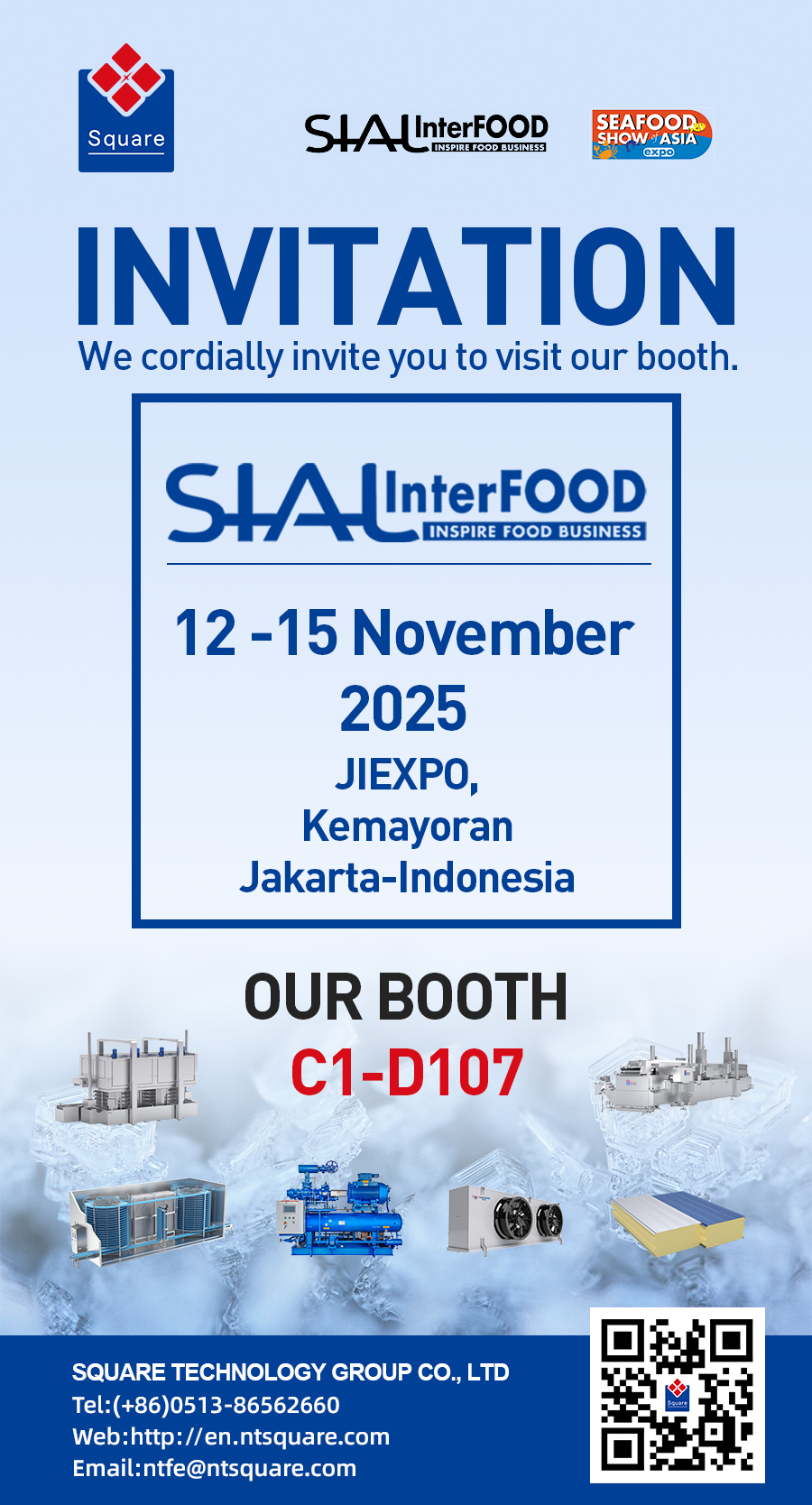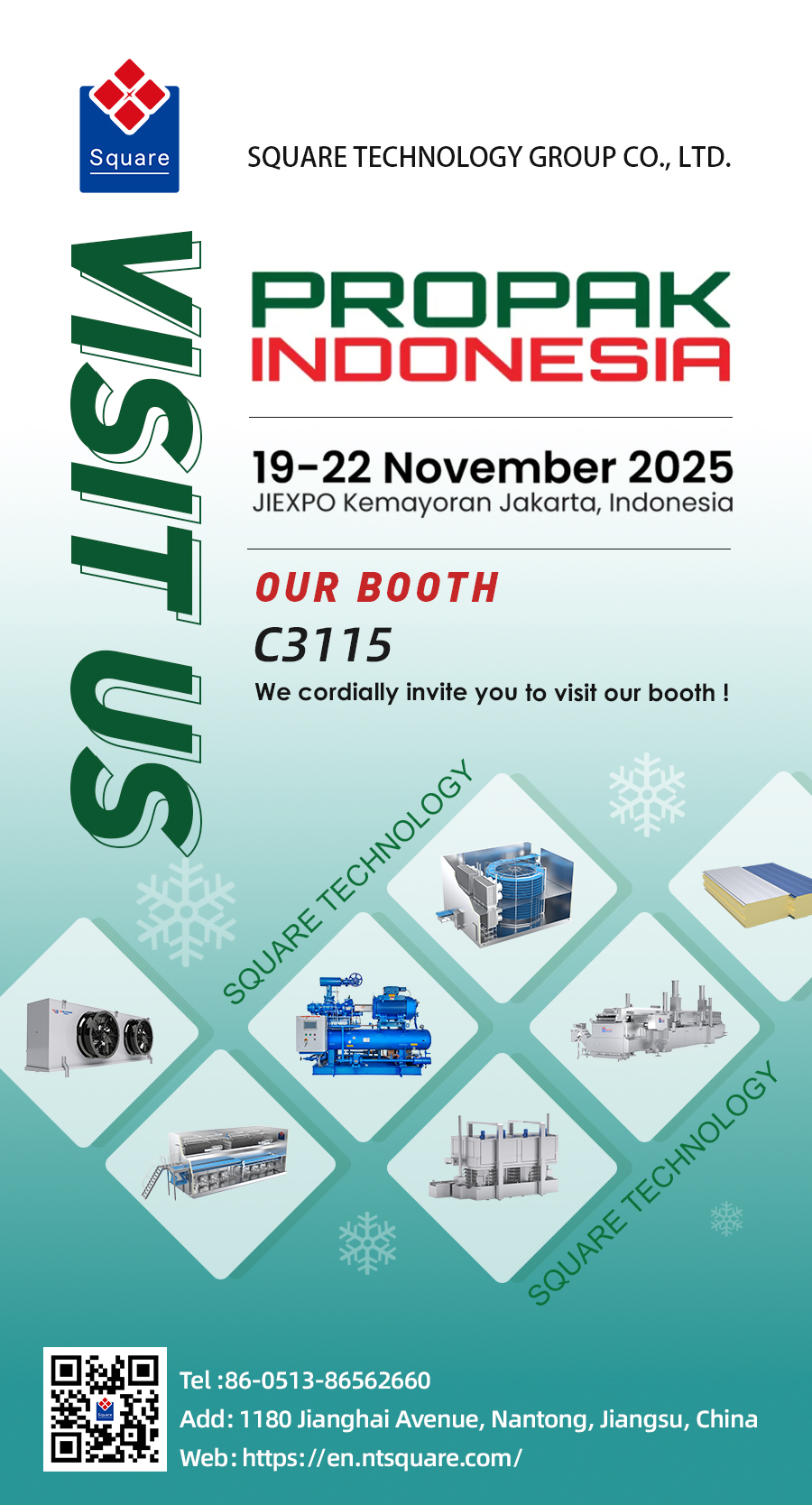Many companies like Square Technology have become a key player in the food processing industry by offering advanced food processing systems. They provide innovative solutions such as refrigeration systems, food processing lines, and IQF freezers, which are essential for maintaining efficiency and quality in the food industry. This blog will walk you through the realm of food processing systems and relevant topics.
Evolution of Food Processing Systems
Food processing systems have evolved significantly from their historical roots, driven by technological advances and modern innovations, around which this part will revolve.
Historical Context and Technological Advances
The history of food processing dates back to ancient times when methods like drying, salting, and fermenting were used to preserve food. The first major technological advancement came with the Industrial Revolution, which introduced mechanization and paved the way for large-scale food production.
Early innovations included the invention of canning by Nicolas Appert in the early 19th century and the development of pasteurization by Louis Pasteur. These methods improved food safety and shelf life significantly.
In the 20th century, the introduction of frozen food technology and vacuum sealing further revolutionized the industry. These advances made it possible to store and transport food over long distances without compromising quality.
Modern Food Processing Technology
Today, food processing technology incorporates cutting-edge innovations that enhance efficiency, safety, and nutritional value. Automation and robotics play a crucial role, allowing for faster and more consistent production.
Companies like Square Technology are notable players, providing advanced solutions like ovens and freezers. These innovations facilitate the bakery and freezing quality of food.

Emerging technologies such as 3D printing are beginning to impact the sector, enabling customized food production. These developments collectively contribute to a more sustainable and efficient food processing system.
Key Components of Modern Food Processing Systems
Modern food processing systems incorporate advanced technologies to enhance efficiency, safety, and quality. Key components include refrigeration and quick-freezing, continuous ovens and high-pressure processing, and rigorous food safety and hygiene standards, which this segment will focus on.
Refrigeration and Quick-Freezing Technologies

Refrigeration is essential for preserving food quality and safety. Systems like spiral freezers and plate freezers ensure rapid cooling, maintaining nutritional integrity. Tunnel freezers offer quick-freezing capabilities, ideal for processing large quantities of food. These technologies reduce spoilage and extend shelf life, providing a reliable method for long-term storage.
Benefits:
- Nutritional preservation: Maintains food’s original vitamins and minerals.
- Quick-freezing: Prevents ice crystal formation, preserving texture.
- Efficient Storage: Maximizes storage capacity without sacrificing quality.
Continuous Ovens and High-Pressure Processing

Continuous ovens and high-pressure processing (HPP) play crucial roles in modern food processing. Continuous ovens allow for efficient, consistent cooking, suitable for large-scale operations. High-pressure processing is a non-thermal method that deactivates harmful pathogens while retaining food’s fresh qualities.
Advantages:
- Uniform Cooking: Continuous ovens ensure even heat distribution.
- Pathogen Reduction: HPP effectively eliminates bacteria without heat.
- Nutritional Benefits: HPP retains more nutrients compared to thermal processing.
Food Safety and Hygiene Standards
Adhering to strict food safety and hygiene standards is crucial. Modern systems incorporate advanced monitoring and control mechanisms to maintain cleanliness. Automated cleaning systems and rigorous sanitation protocols ensure minimal contamination risk.
Key Features:
- Automated Cleaning: Reduces the need for manual labor, ensuring consistency.
- Sanitation Protocols: Adherence to guidelines like Hazard Analysis Critical Control Point (HACCP).
- Real-Time Monitoring: Continuous oversight to prevent safety breaches.
By integrating these components, food processing systems enhance efficiency, quality, and safety, meeting the stringent demands of today’s consumers and regulatory bodies.
Applications of Food Processing Systems
Incorporating modern technologies such as ovens and freezers, food processing systems can significantly improve efficiency, quality, and traceability in various sectors. Let’s explore how these advancements are applied in bakery, meat, and seafood processing.
Bakery

Food processing systems in the bakery industry focus on automation and monitoring to ensure consistent quality. Companies like Square Technology deploy spiral freezer to freeze the frozen doughs, croissant, puff pastry, egg tart crust, pies. They also provide spiral proofers with temperature and humid control.
Meat
In meat processing, technological advancements like freezers are also very useful. For instance, the spiral freezer, tunnel freezer and impingement freezers are ideal for freezing the whole chicken, chicken parts, beef parts, meat patties, seasoned meat, fried meat.
Seafood

The seafood industry benefits vastly from food processing systems. Companies like Square Technology provide spiral freezer, tunnel freezer, impingement freezer, plate freezers for various seafoods,including fish fillet, whole fillet, shell-on/shelled shrimps, Octopus, Crabs, Surimi.
Sustainability and Future Trends in Food Processing
Advancements in food processing are focusing on reducing the carbon footprint, increasing energy efficiency, and ensuring compliance with stringent regulations. The industry’s future trends underscore these priorities as it adopts more sustainable practices through innovative technologies.
Reducing the Carbon Footprint of Food Processing
Food processing systems are increasingly integrating digital technologies like AI and IoT to improve energy efficiency and reduce emissions. Smart sensors and automation enable real-time monitoring, optimizing energy consumption at various stages.
Adopting renewable energy sources, such as solar and wind, is also on the rise within the industry. These initiatives aim to not only comply with sustainability regulations but also to meet consumer demands for eco-friendly practices. By transitioning to low-emission technologies, companies can significantly cut down their carbon footprint.
Waste reduction through better supply chain management, facilitated by digital forecasting and analytics, also plays a crucial role. This approach helps in balancing supply and demand, thereby minimizing food wastage and enhancing sustainability efforts.
Challenges and Opportunities
Several challenges exist in modernizing food processing for greater sustainability. High initial costs for implementing advanced technologies and renewable energy systems can be a barrier for many companies. Regulations around sustainability are becoming more stringent, requiring significant investment in compliance.
Despite these challenges, numerous opportunities are emerging. The embrace of Industry 4.0 solutions offers pathways to higher productivity and efficiency. Companies that lead in adopting these innovations stand to gain competitive advantages and can expect long-term cost savings.
Moreover, emerging trends in consumer preferences toward sustainable products create market opportunities. Businesses that align their practices with these preferences can enhance their brand reputation and loyalty. Focused efforts on sustainability will likely attract investment and partnerships aimed at fostering green technologies.




